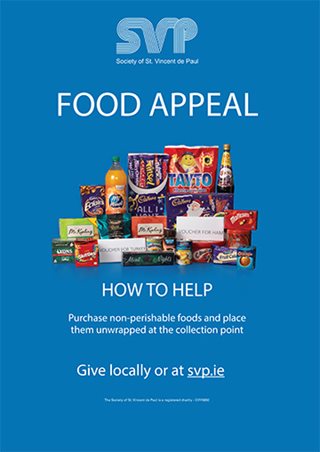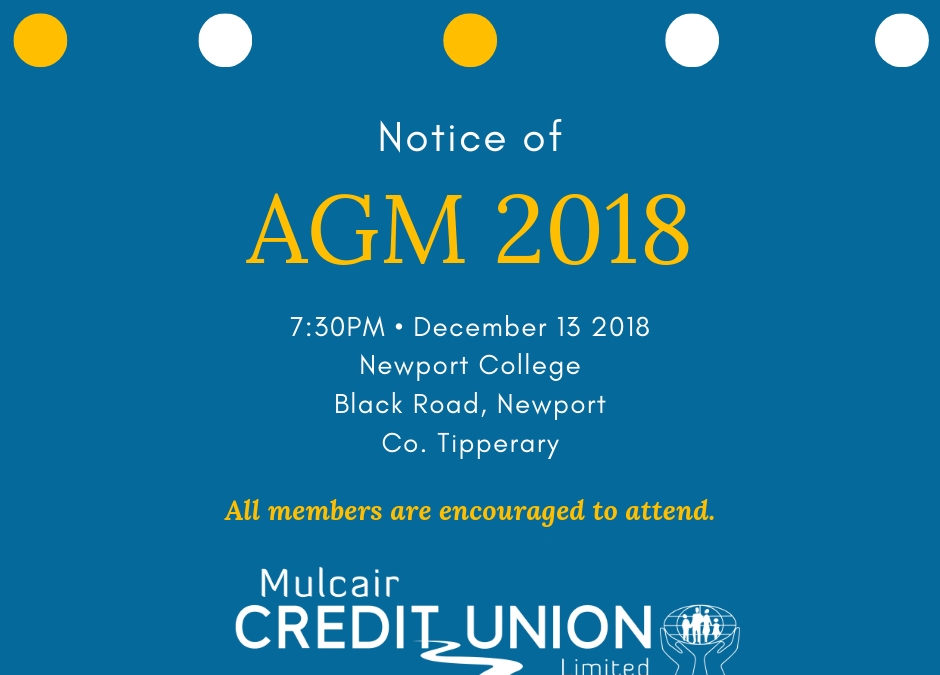
by mulcair-cu | Dec 21, 2018 | Latest News
Newport Office
Friday 21st Dec 2018 10.00am – 7.30pm
Saturday 22nd Dec 2018 10.00am – 1.00pm
24th Dec 2018 – 27th Dec 2018 Closed
Friday 28th Dec 2018 10.00am – 6.00pm
Saturday 29th Dec 2018 10.00am – 1.00pm
Monday 31st December 2018 10.00am – 2.00pm
Tuesday 1st January 2019 Closed
Open as normal from 3rd January 2019
Murroe Office
Friday 21st Dec 2018 10.30am – 6.30pm (Closed lunch 1.15pm – 2pm)
Friday 28th Dec 2018 10.30am – 5.00pm (Closed lunch 1.15pm – 2pm)
Rearcross Office
Friday 21st Dec 2018 4.00pm – 7.00pm
Saturday 22nd Dec 2018 10.30am – 12.30pm
Friday 28th Dec 2018 Closed
Saturday 29th Dec 2018 10.30am – 12.30pm
WISHING ALL OUR MEMBERS A VERY HAPPY CHRISTMAS AND A PEACEFUL NEW YEAR.
THANK YOU FOR YOUR SUPPORT DURING 2018

by mulcair-cu | Dec 21, 2018 | Latest News
The next processing day is next Friday 28th December.
Any transfers or payments made after today will not be processed until the 28th of December.
Please note we are closed tomorrow at 1pm.

by mulcair-cu | Dec 5, 2018 | Latest News
Give a family in your community a Christmas to remember!
Last year thousands of families across Ireland celebrated Christmas because of help from people like you.
Unfortunately, this Christmas even more families will need help to put food on the table.
You can help this Christmas. Please support the SVP Food Appeal.
Mulcair Credit are an official collection point for this Food Appeal.

by mulcair-cu | Dec 4, 2018 | Latest News
Please take part in the SVP – Society of St. Vincent de Paul Ireland Giving Tree today and donate gifts to make Christmas that little bit brighter for children and families who are struggling in your community.
Mulcair Credit are an official collection point for this Toy Appeal. Only new toys and books are accepted.
Find out more: https://www.svp.ie/appeal-2018/giving-tree.aspx

by mulcair-cu | Dec 3, 2018 | Latest News
The Credit Union is required to hold up to date identification on all members under the Criminal Justice (Money Laundering and Terrorist Financing) Act 2010.
We are asking our members to provide up to date ID, proof of address (dated within 6 months) and proof of PPSN as soon as possible.
Visit any one of our offices with original documentation and we will copy it and return it to you immediately.
Download and complete this page when you are returning your documentation before 31st January 2019 and you will be entered into a draw for a voucher worth €250.

by mulcair-cu | Nov 27, 2018 | Latest News
Notice is hereby given that the Annual General Meeting of Mulcair Credit Union will take place in Newport College, Black Road, Newport, Co. Tipperary on Thursday 13th December 2018 at 7.30pm.
Please exercise your right as a member of the Credit Union and attend the A.G.M.
Only those who have reached the age of 16 may participate in the business of the A.G.M.
Please bring your passbook with you as evidence of membership.






